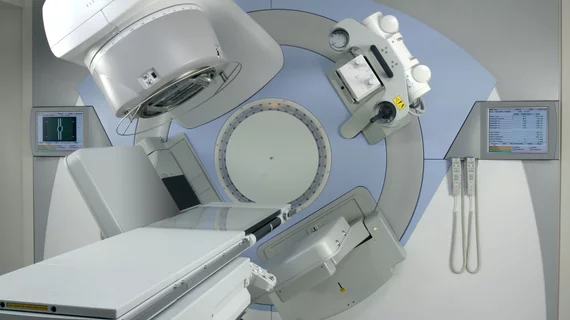Why immunotherapy research will suffer until clinicians agree on universal QA standards for radiotherapy
Dozens of research papers and large-scale trials are evidence that interest in immunotherapy is growing among oncologists, according to an editorial published in the International Journal of Radiation Oncology • Biology • Physics, but that research won’t be able to grow without universal adherence to quality assurance (QA) standards for radiation therapy. For now, at least, that’s not the reality.
“The fervor surrounding immunotherapy has resulted in an unprecedented progression from safety and efficacy studies to large-scale randomized trials across the oncology trials landscape,” authors Lachlan J. McDowell, MBBS, and June Corry, MD, wrote. “As we embark on the journey of investigating these new agents, we should pause to remember the successes and mistakes of the past. Championing the role of quality assurance in radiotherapy clinical trials is one of these successes.”
Past research has shown that deviating from radiotherapy protocol results in poorer survival and higher rates of treatment failure in lung, central nervous system and head and neck cancers, the authors, of the Peter MacCallum Cancer Center in Victoria, Australia, and St. Vincent’s Hospital in Melbourne, Australia, respectively, said. One paper found non-compliant radiation plans were associated with a 20 percent sacrifice in overall survival.
McDowell and Corry expressed concern about the recently published PACIFIC study in their editorial, which they said didn’t mandate any kind of quality standard for the radiotherapy used. RT quality should have been accounted for, they said, especially since the detrimental effect of deviating from radiotherapy protocol had already been well-documented in the medical literature.
“Allowing to chance a variable as potentially confounding as poor radiotherapy quality opens the door for bias in either direction, potentially resulting in either the loss of a beneficial therapeutic agent or in unnecessarily subjecting our patients to a costly medication with long-lasting and serious side effects,” the authors wrote.
They said that while the benefit of immunotherapy in head and neck cancers, for example, is an exciting prospect, scientists don’t yet know what that exact benefit is. McDowell and Corry guessed it was likely to be “modest at best,” compared to the claim that poor-quality radiotherapy can negatively affect a patient’s health, which is backed by copious research.
Incorporating a quality assurance program for trials involving radiation therapy might be a costly endeavor, the authors said, but in the long term researchers won’t be able to run high-quality trials without them.
“Clinical research needs to build on what has been previously studied and learnt,” they wrote. “As we embark on the next generation of clinical trials, we need to ensure that RT-QA is incorporated into future curative intent immunotherapy trials for valid and optimal results. It is the responsibility of our profession to advocate for our patients and ensure that clinical trials incorporate adequate radiation therapy QA.”

